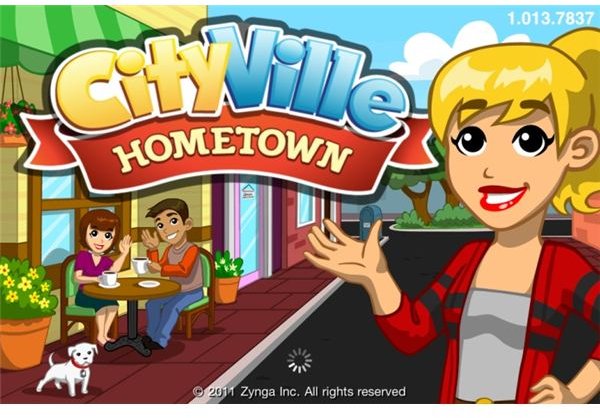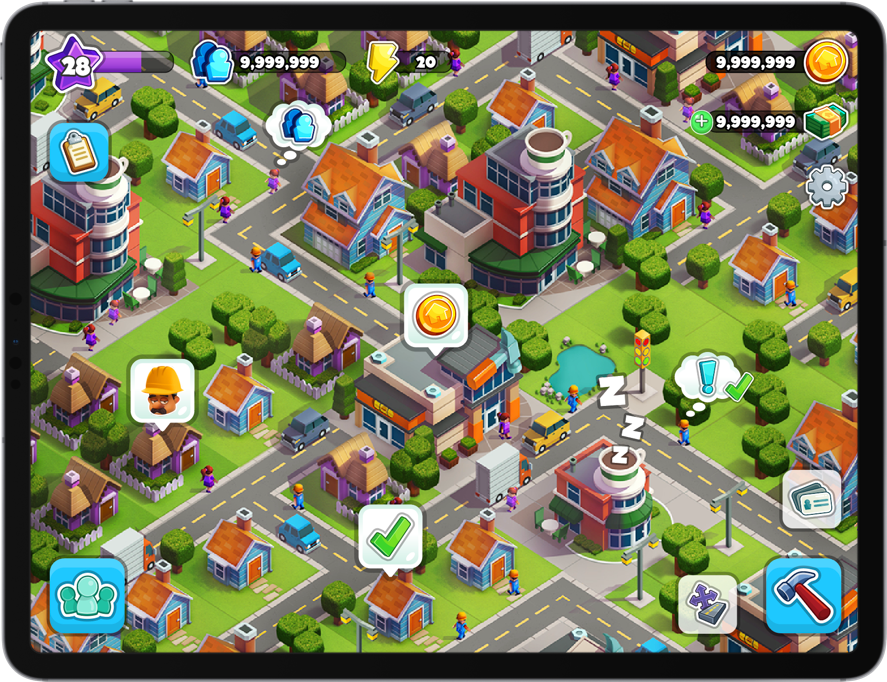
When the company launched The Ville in June, virtually every reviewer noted the similarities to The Sims Social and many. The company’s shares currently trade at under $3. Zynga Q2 earnings also fell short of expectations, despite the fact that the number of active daily users was up significantly over the last three months.

Earlier this week, the company was sued over allegedly misleading financial statements. Zynga is obviously going through a rough time already. While other small developers may not have the resources to stand up against the social gaming company, Electronic Arts and Maxis have the resources “to do something about it” and that the company is taking a stand “helps the industry protect the value of original creative works and those that work tirelessly to create them.” In her blog post, EA’s Bradshaw notes Zynga’s history of cloning other developer’s work. Nonetheless, we plan to defend our rights to the fullest extent possible and intend to win with players.

Update: Zynga’s response to this, which we just received from a company spokesperson, is that TheVille “builds on every major innovation from our existing invest-and-express games dating back to YoVille and continuing through CityVille and CastleVille, and introduces a number of new social features and game mechanics not seen in social games today.” The company’s General Counsel Reggie Davis also says that it’s “ironic that EA brings this suit shortly after launching SimCity Social which bears an uncanny resemblance to Zynga’s CityVille game. copyright laws.” The degree to which Zynga copied The Sims, says Electronic Arts, “was so comprehensive that the two games are, to an uninitiated observer, largely indistinguishable.” Lucy Bradshaw, General Manager of EA’s Maxis Label, says Zynga’s The Ville “copied the original and distinctive expressive elements of The Sims Social in a clear violation of U.S. Now, the company is being sued by gaming giant Electronic Arts on behalf of its Maxis label for “infringing EA’s copyrights to its Facebook game, The Sims Social.” So far, it is looking like MAUs are now a better measure of who is actually playing the game, which is good thing for understanding the underlying business.īut it has just got a lot harder to reach 100 million MAUs again.Zynga has a bit of a reputation for cloning other game developers’ ideas. The DAU/MAU chart for Cityville shows that the changes have lifted the engagement rate from around 18 to around 22. That’s a lot of users that Zynga paid to acquire who then left.

For more details, check out the bottom of this Facebook blog post.) Facebook has decided to redefine MAUs to mean “users who have authenticated” (i.e. In practice, many developers seem to require people to log in before they use the app.

If you thought the change was more likely to be due to a change in how MAUs were calculated, you’d be right.įacebook used to measure an MAU as someone who visited an app, before they authenticated.


 0 kommentar(er)
0 kommentar(er)
